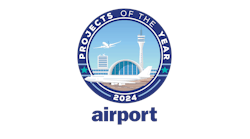In my brief time as editor of Ground Support Worldwide, numerous news stories about airport worker labor negotiations have come across my desk.
Strikes and other demonstrations in several major cities have made it clear that this is a critical topic facing the industry today.
Although contracted workers’ desire to earn higher salaries came as no surprise to me, I was caught off guard by a report, cited by the Service Employees International Union (SEIU), which stated 42 percent of airport workers live below the poverty line.
The report, published by Lake Research Partners, states a majority of the 599 workers surveyed across targeted airports make less than $12 an hour and a majority lives in a household making less than $25,000 annually.
And with one-third of the participants having been at the airport for less than a year and more than half being on the job for less than three years, the report suggests there are not many long-term workers being employed.
Without diving into the politics of organized labor and minimum wage standards, I can see some benefits to increasing salaries for ramp and cargo agents, baggage handlers, fuelers, lavatory service personnel, tug drivers and other ground service providers.
Simply put, an increase in wage could reduce employee turnover.
As a result, more satisfied workers may be more inclined to stay in a position for a longer period of time, gather valuable on-the-job experience and impart their years of knowledge on new employees.
Moreover, employees with years of experience may be less prone to mistakes and accidents, helping create safer working conditions.
Safer working conditions could mean quicker turnarounds on the ramp and more productivity.
Without a doubt, a company needs to look at all areas of its budget, not just employee salaries, to make sure it is profitable while keeping rates competitive in the market. But if an increase in wage could encourage more employees to do a better job for a longer period of time, is it worth considering?







